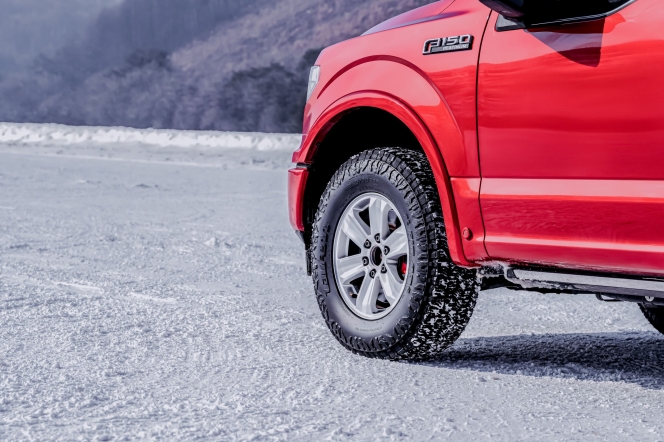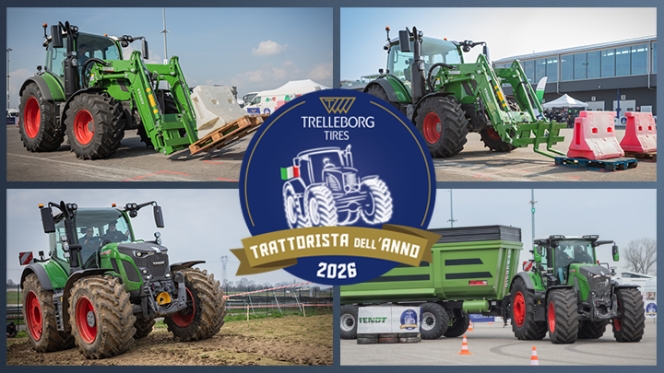
Smart mobility is as relevant as ever, with growing urbanisation rates in almost all countries across the globe. But the concept isn’t new. At least I recall reading about the future of driving when I was very young, and a university project concluded that in the future, cars would be able to connect to each other and slide onto some sort of rail system when driving on the highway, so nobody would have to worry about steering or speeding when covering the long stretches of the journey. Not surprising, the project couldn’t have been more wrong in its conclusion. But why didn’t it work? It would have reduced accidents, pollutant emissions, road wear and maintenance costs, and it would have probably been quite easy to develop guiding chips and software to let cars in and out of the chain.
Well, the answer is simple, and is proven by the fact that car sales are still going up worldwide in spite of an ever-growing range of alternative transportation methods available to the buyers: freedom. As global wealth keeps increasing, all societies can recognize that the first luxury people growing out of poverty take is to buy a car, in many cases even before considering taking out a mortgage to buy a house. Why do they do that? Obviously to signal their increased wealth to the people around them (it’s harder to show if your house is bought or rented), but also to enjoy the freedom of being able to go exactly where they want to go and when. In these corona times being able to move about without bumping into others in public transportation is of course also an important factor. If this wasn’t the case, car sales would be dropping rapidly. Public transportation is cheaper, if you compare it to total cost of ownership of a car it’s easy math, and in many cases it’s also faster and easier. Plus, you can be productive getting some work done or enjoying a good rest when you don’t have to sit at the wheel in a traffic jam.
For those who care about global warming and reducing the environmental impact, there’s even further incentive to get rid of the car, but still, this is not what we see in the new car sales figures – although you could argue that some people buy a new car because it pollutes less than the old one.
Bicycles
With all the new technology, it will be very interesting to see how smart mobility will be implemented in cities across the globe, and if it will change the trend for good. After all, it’s be big cities with massive population numbers that will make a difference for the planet. If we look at a city like Copenhagen, it has for many years focused on being the world’s best city to ride a bicycle in, and it has implemented many innovative structures allowing cyclists to zip from one place to another in a matter of minutes with minimal need to stop along the way. Some places bridges have been built just to cater to cyclists. No doubt you can get around faster and cheaper in Copenhagen if you ride a bike than by any other means of transportation.

Another thing that is becoming increasingly interesting in the big cities is the drone technology, now we have seen Chinese firefighters putting out high-rise fires using drones controlled from the ground, and many places they have also begun working as parcel or food delivery agents. But is there a viable case to argue that we will all be flying in private drone vessels instead of driving in cars in the coming decade? I wouldn’t bet my money on it. First of all, it would take long until the general public would trust a drone manufacturer enough to not fear dropping to the ground or being flung into a building or another drone mid-air at any moment. Second of all, they would most definitely run on electricity, which we know from electric cars means very heavy batteries and/or short operation times. Probably in colder regions you would also struggle with much lower performance during winter, and possibly weather conditions not allowing them to take off.
That’s another nightmare scenario – to be caught in a thunderstorm or hailstorm up in the air.
Naturally, the ultimate challenge would be that everyone would basically need to have a pilot license to operate them, and air traffic control would be an entirely new concept in this scenario. We have all seen movies like Stars Wars or The Fifth Element where flying vehicles somehow get into invisible lanes and layers, but it’s hard to see how that can go from fiction to reality.
Urban hubs
So, how can consumers most likely have their desire for freedom fulfilled within a smart mobility concept? Most likely by creating urban hubs or city line parking facilities, so it’s easy to take the car to, from, or between cities, but not inside them. At these hubs, you would park the car and jump on the next shuttle to anywhere in the city, or even ride a bike that you brought with you. Designing these hubs, along with ample green areas in the cities, is the only way that any city planner can create the grounds for real smart mobility, and not take people’s freedom away from them. Then the only thing left is to address the issue of the environmental impact caused by passenger cars, both combustion engine emissions and tyre pollution from wear during use and waste management at end of tyre life.
Tyre manufacturers don’t seem to be making huge changes to the technology yet, except for a few innovative products like the Michelin Tweel – and the ultimate challenge is of course that the vehicle so far has to be in contact with the road surface to move and handle satisfactorily. It’s hard to imagine any tyre concept where rubber against the road surface isn’t involved, and it’s also hard to imagine any tyre manufacturer supporting such a project, given the massive investments they have in their production equipment, which isn’t easy to readjust to put out something else. Well, at least not any serious manufacturer – there was a Chinese plant that stopped producing tyres this year to start producing face masks instead because of corona demand, but that probably says something about the quality of both products coming out of that factory, and it makes me very interested in reading their mission statement.
Ultimately, for tyre manufacturers to start investing in any game changing product development, we would have to see a development like we have seen with British Tobacco actually advertising against smoking – which is very much in line with the trends of the day but doesn’t seem rational from a business perspective. So, to conclude, I’ll venture a bet that we won’t see any drastic changes in how much smarter our mobility options will become until we either see a scenario that will allow people to experience the same level of freedom as owning a car, drastically reducing the environmental impact from driving and tyre waste, and/or creating cities where it utterly doesn’t make any sense to drive instead of hopping on the city’s smart mobility system, whatever that might turn out to be.
- Yokohama Rubber
- Yokohama ADVAN Tyres
- Nürburgring 24-Hour Race
- Nürburgring Langstrecken-Serie
- BMW M Motorsport
Yokohama Becomes BMW M Motorsport’s Official Tyre Partner For 2026 Nürburgring Events
- By TT News
- March 03, 2026

The Yokohama Rubber Co., Ltd., has entered into a new agreement to serve as the official tyre supplier for BMW M Motorsport, the division responsible for the brand's global racing endeavours. This collaboration will debut at the prestigious Nürburgring 24-Hour Race and throughout the Nürburgring Langstrecken-Serie in 2026.
This renewed partnership revives a historical connection between the two companies, who previously worked together on the same iconic circuit from 1980 to 1990. During that initial decade-long stint, their combined efforts secured two overall victories. After an interval of nearly four decades, they are reuniting for the current season to compete in the premier SP9 class, fielding the BMW M4 GT3 EVO. For this campaign, Yokohama will equip the vehicle with its high-performance ADVAN racing tyres, with the shared objective of capturing another overall win.

Beyond its tie-up with the BMW team, Yokohama Rubber continues its longstanding commitment to the Nürburgring. It will provide its tyres to numerous leading teams contesting both the endurance series and the 24-hour event this season. The company is focused on achieving an overall championship victory for a vehicle equipped with its YOKOHAMA brand tyres.
Franciscus Van Meel, CEO, BMW M GmbH, said, “We are excited to welcome YOKOHAMA as Official Partner of BMW M Motorsport for our Nürburgring programme. YOKOHAMA’s technical expertise and motorsport passion strengthen our drive for maximum performance and precision. Their support allows our team to focus fully on what defines BMW M Motorsport: pushing the limits on every lap. We look forward to a strong endurance season.”
Team: Schubert Motorsport
Class: SP9
Car: BMW M4 GT3 EVO
Tyres:
ADVAN A005 (for dry conditions); Sizes: front 300/680R18, rear 330/710R18
ADVAN A006 (for wet conditions); Sizes: front 300/680R18, rear 320/710R18
Race Schedule (as of date of this release)
March 14 (Sat): NLS Round 1
March 21 (Sat): NLS Round 2
April 11 (Sat): NLS Round 3
April 18 (Sat) –19 (Sun): Nürburgring 24-Hour Race (Qualifiers) , NLS Rounds 4 & 5
May 14 (Thu) –17 (Sun): Nürburgring 24-Hour Race
June 20 (Sat): NLS Round 6
August 1 (Sat): NLS Round 7
September 12 (Sat) –13 (Sun): NLS Rounds 8 & 9
October 10 (Sat): NLS Round 10
Second-Generation Laufenn X FIT AT2 All-Terrain Tyre Launched In US
- By TT News
- March 03, 2026

Hankook Tire has introduced the Laufenn X FIT AT2, a new addition to its all-terrain tyre lineup aimed at drivers who require durability and adaptability without compromising on everyday driving comfort. Positioned as an affordable option, this tyre is engineered to handle a mix of on-road and off-road conditions while delivering long-lasting value.
Building upon the foundation of its predecessor, the X FIT AT2 brings several performance upgrades. It features enhanced traction across varied landscapes, a 15 percent improvement in tread longevity and reliable handling in different weather conditions. The tyre is designed to fit a broad spectrum of light trucks and SUVs, with availability ranging from 15 to 22 inches to accommodate popular vehicle models in the market.
This launch reflects Laufenn’s ongoing strategy to diversify its offerings as it strengthens its presence in over 100 countries. Since its introduction in Europe, the brand has consistently expanded its range for both passenger vehicles and commercial applications, responding to shifting consumer needs. The X FIT AT2 reinforces this direction by providing a balance of rugged capability and composed road manners for those who frequently transition between highways and rougher terrain.
Engineered for resilience, the tyre incorporates a reinforced structure, including select sizes with three-ply sidewalls to resist cuts and impacts. Its tread design features directional and lateral grooves that enhance water dispersion and grip on slippery or loose surfaces. Additional protective elements such as offset shoulder blocks and rim guards help shield against debris and curb damage. A two-step deep sipe pattern promotes uniform wear, contributing to extended usability.
Certified with the Three-Peak Mountain Snowflake symbol, the X FIT AT2 offers dependable performance in dry, wet and snowy winter conditions. It comes with warranty coverage tailored to its sizing, offering 60,000 miles for P-metric versions and 50,000 miles for LT-metric options. With this release, Laufenn continues to round out its portfolio alongside existing lines such as the S FIT, G FIT and I FIT series.
KC Jensen, Vice President – U.S. Passenger Car and Light Truck Sales, Hankook Tire America Corp, said, “The X FIT AT2 represents the next step forward for the Laufenn brand as we continue to deliver practical, dependable solutions for everyday drivers who also want the freedom to explore off-road. Building on the success of the original X FIT AT, this second-generation tyre offers a stronger blend of durability, versatility and everyday comfort at an accessible value.”
Comerio Ercole To Showcase Calendering And Digital Solutions At Two Premier 2026 Trade Fairs
- By TT News
- March 03, 2026

Comerio Ercole is set to make a significant impact on the global stage in 2026 with its participation in two major industry exhibitions. The company will showcase its latest advancements at both Chinaplas 2026 and Tire Technology Expo 2026, highlighting a comprehensive portfolio designed to enhance precision, productivity and sustainability in polymer processing.
At Tire Technology Expo, Comerio Ercole will present integrated systems tailored for the tyre industry, focusing on high-performance rubber calendering and digital intelligence. A flagship solution is the TRIPLE 4-roll calendering unit. Its innovative "S" configuration provides remarkable flexibility by enabling the processing of both textile and steel cord, as well as the production of rubber sheeting, all within a single line. The system’s capability for simultaneous lamination ensures high precision and product stability while minimising defects. Downtime is a critical factor in tyre production, and the patented FASTEEL system directly addresses this. By automating the steel cord change process, it dramatically reduces changeover time from hours to minutes, allowing the line to continue running during preparation and thereby maximising plant availability and operator safety. Following the calendering process, the SUPERCUT system guarantees clean, precise transversal cuts for both steel and textile-reinforced rubber, integrating guillotine and high-speed rotary blades to minimise waste and streamline downstream winding.
Simultaneously, at Chinaplas 2026, taking place in Hall 2.1 at Stand C85, the company will place a strong emphasis on its patented HYDROPLUS concept for PVC and plastic calendering. This technology suite is engineered to deliver micrometric precision and robust process stability through advanced hydraulic controls. Central to this is HYDROGAP, a system that achieves exceptional thickness uniformity with high-resolution gap positioning. Complementing this are HYDROSAFE, which ensures rapid roll separation for ultimate protection, and HYDROTHERM, a feature that intelligently compensates for thermal expansion to maintain precise gap settings during fluctuating operational temperatures.
Beyond mechanical innovation, the company is driving digital transformation with its CELEMETRY and MINERV-AI platforms. CELEMETRY focuses on sustainability by converting production data into actionable insights for environmental reporting and energy optimisation. MINERV-AI captures and standardises operational expertise through artificial intelligence, supporting more effective maintenance protocols, training procedures and overall operational consistency. Through these combined efforts at both exhibitions, Comerio Ercole is demonstrating a holistic approach to advancing the plastics, rubber and tyre industries.
Trelleborg Tires And Fendt Partner For 2026 Tractor Driver Of The Year Event
- By TT News
- March 02, 2026

The seventh edition of Trelleborg Tires’ Tractor Driver of the Year competition took place at the Cremona Circuit in Italy on 28 February 2026, drawing 50 skilled participants from across the nation. Held at a venue renowned for its professional standards, the event has become a fixture in the agricultural calendar, offering a platform for drivers to demonstrate their expertise while experiencing advanced tyre technology in practical scenarios. After a demanding day of challenges, Francesco Coppe emerged victorious, distinguished by his exceptional precision and versatility across the various disciplines.
The competition featured a series of exercises designed to assess core abilities, including manoeuvring, loader operation, reverse driving and trailer handling, culminating in a field regularity test. Throughout these tasks, participants directly observed the benefits of Trelleborg’s ProgressiveTraction technology, which aims to boost traction, reduce soil impact and enhance overall efficiency. This year, Fendt joined as the technical partner, supplying the machinery for the event. The tractors used, such as the Fendl 300 Vario Gen5, 500 Vario Gen4 and 800 Vario Gen5 models introduced in 2025, exemplified how modern agricultural engineering supports operators in achieving high performance with comfort and ease, both on road and in the field.


Daniela Gambatesa, Marketing Manager Italy, Trelleborg Tires, said, “The ‘Tractor Driver of the Year’ once again confirms its position as a landmark event for the agricultural sector: a unique opportunity to celebrate expertise, innovation and professionalism. This 7th edition recorded a remarkable participation of tractor drivers, highlighting the growing importance of the initiative. A key highlight of the event was the new ‘5,000 Hours of Guaranteed Performance’ campaign dedicated to ProgressiveTraction® treads, originally launched in July 2025 and now featuring a customised look for Fendt tractors equipped with VarioDrive technology. This initiative allows us to prove in real working conditions the long-term durability and efficiency of our tyres, offering tangible support to agricultural professionals in their daily operations. The collaboration with Fendt as technical partner further reinforces our shared commitment to excellence, combining advanced technology with high-performing solutions for the industry.”
Silvia Uderzo, Advertising & Sales Promotion Specialist, Fendt Italia, said, “Fendt has believed in the ‘Tractor Driver of the Year’ project since its early editions, reflecting the trust and importance we attribute to this initiative. Taking part again this year represents a valuable opportunity to enhance the skills of tractor drivers and to demonstrate how the technology, performance and comfort of our machines play a decisive role in improving operational efficiency. The partnership with Trelleborg Tires confirms our shared commitment to delivering increasingly high-performing and sustainable solutions to agricultural professionals, combining innovation with close attention to their real operational needs.”







Comments (0)
ADD COMMENT